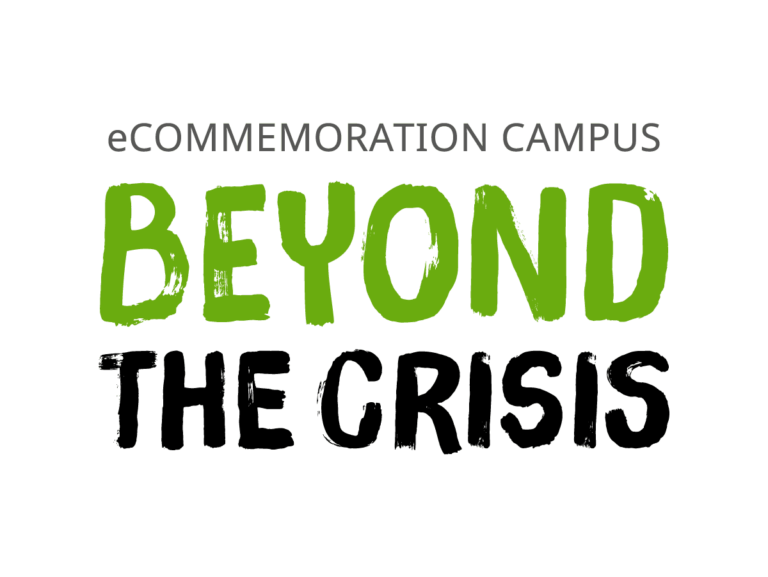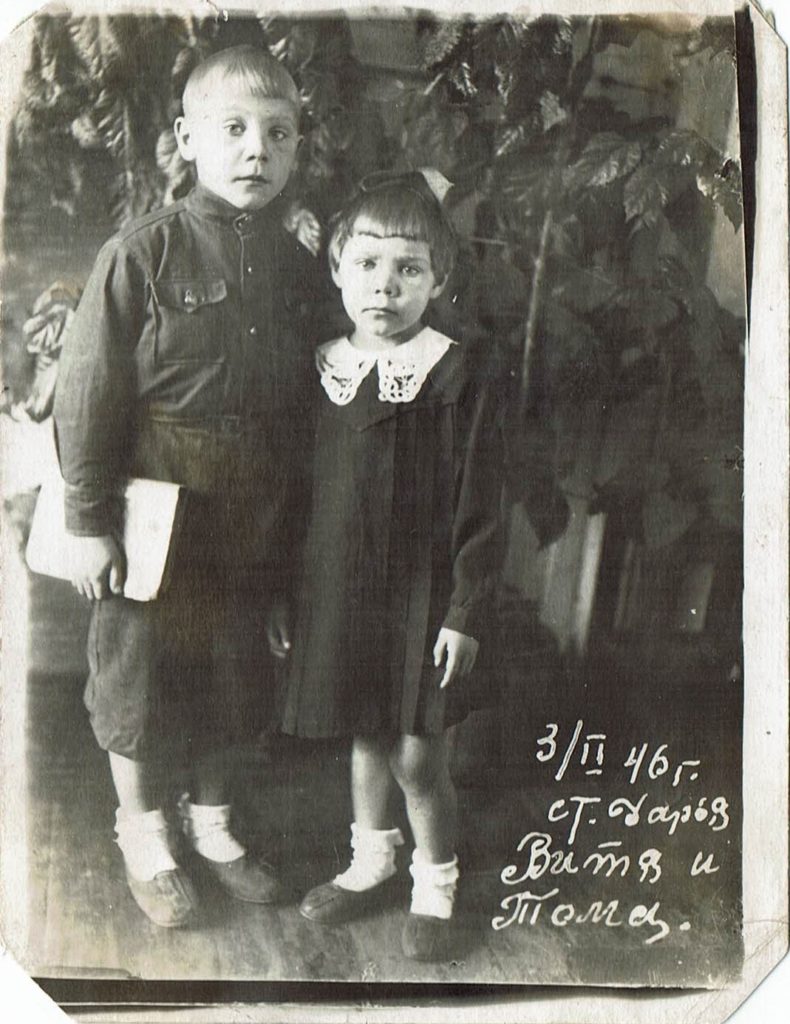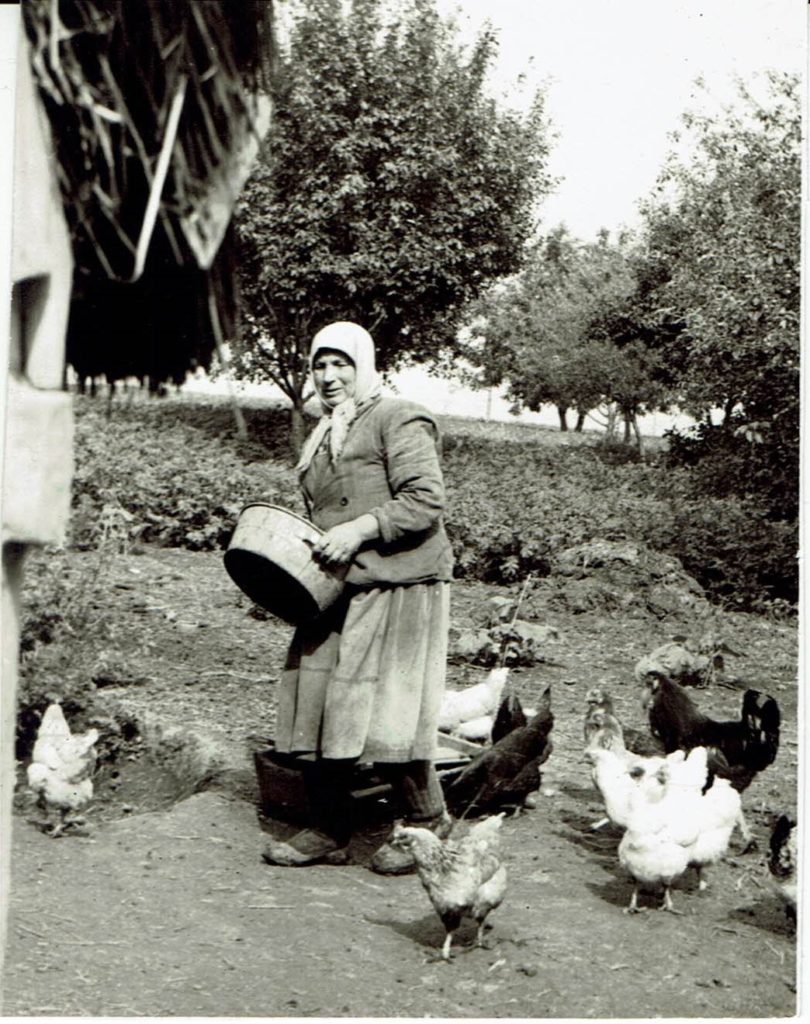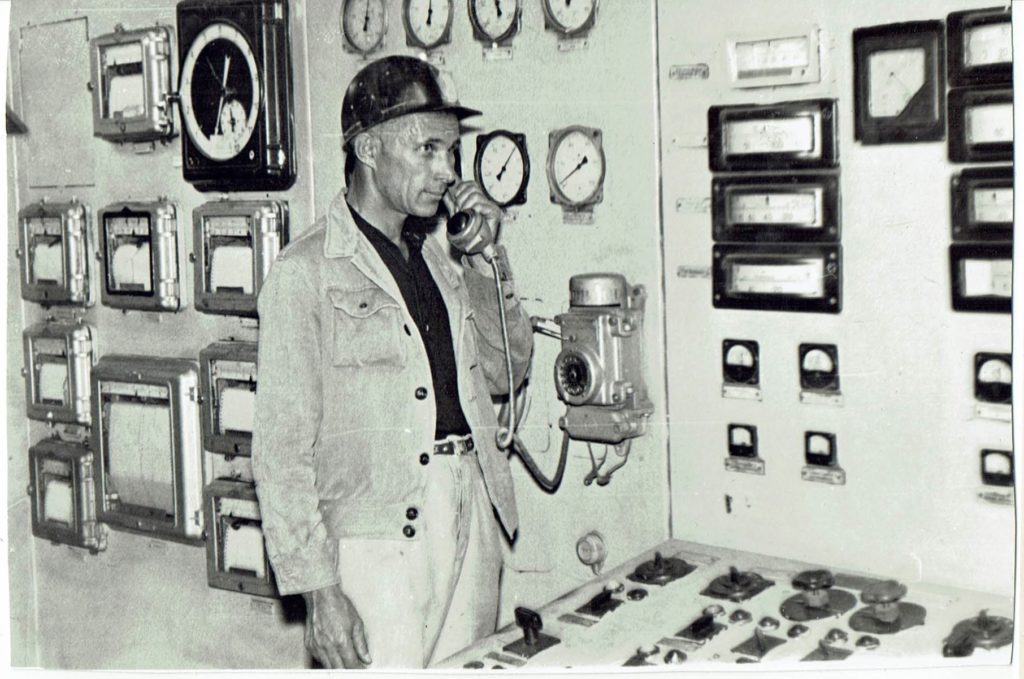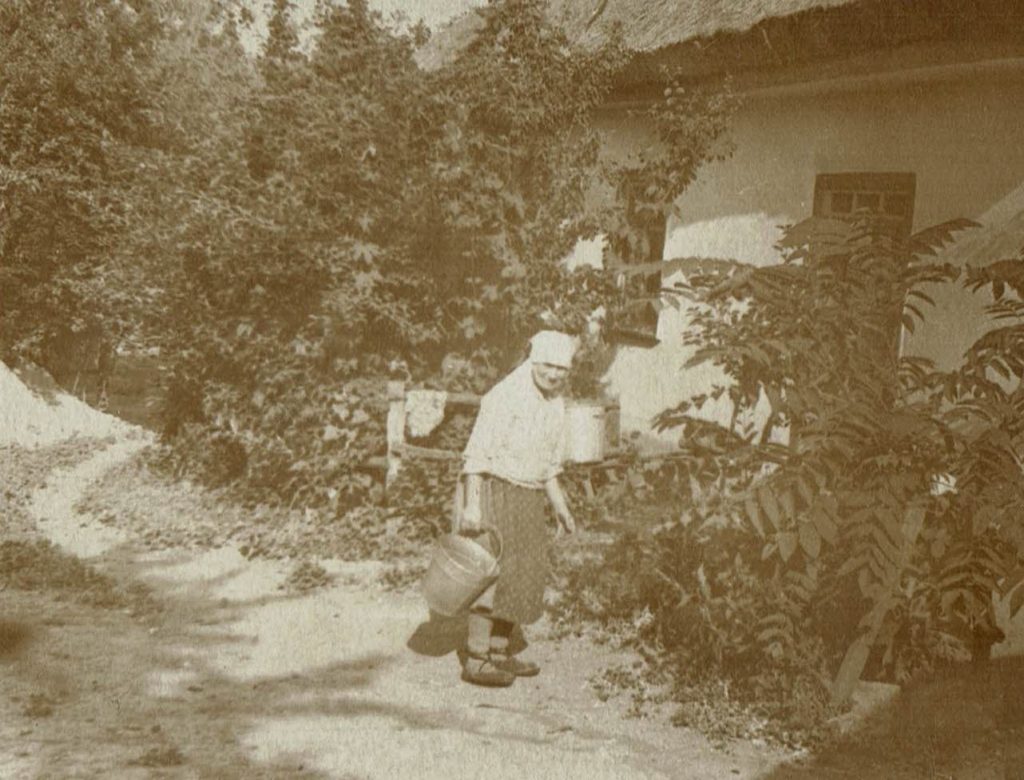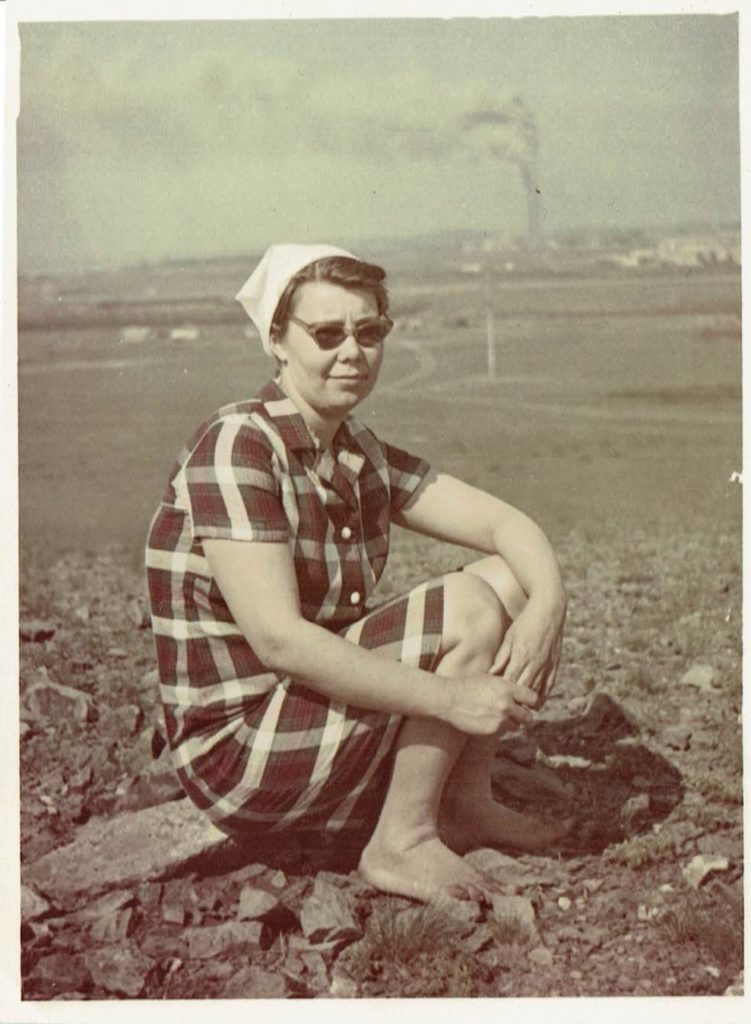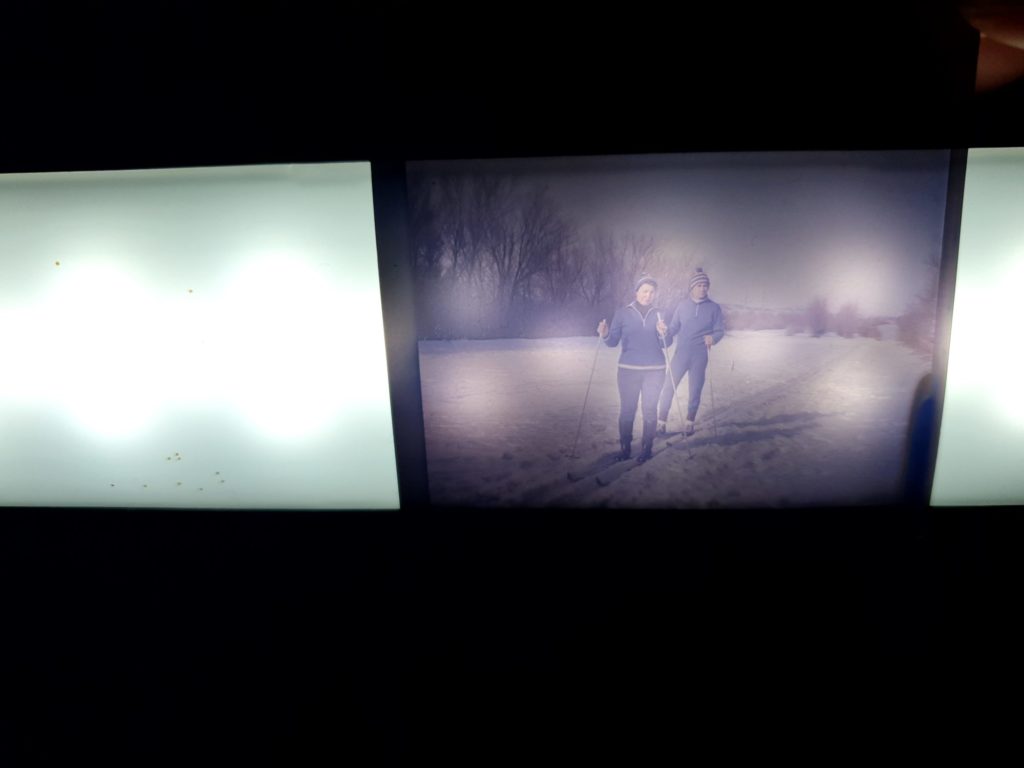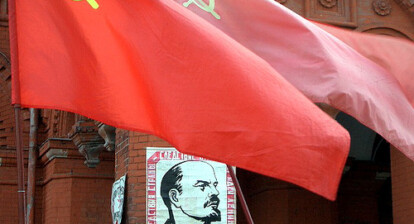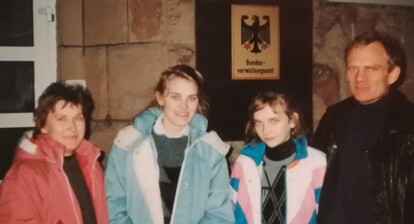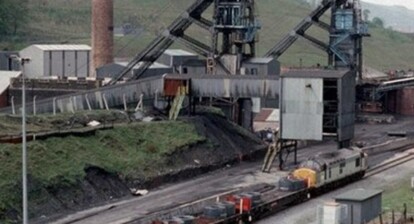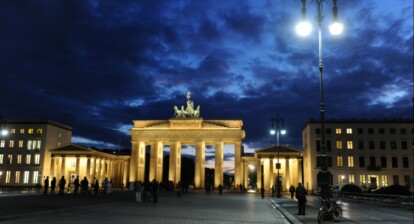Earliest Memory Of A Crisis – Nikolai
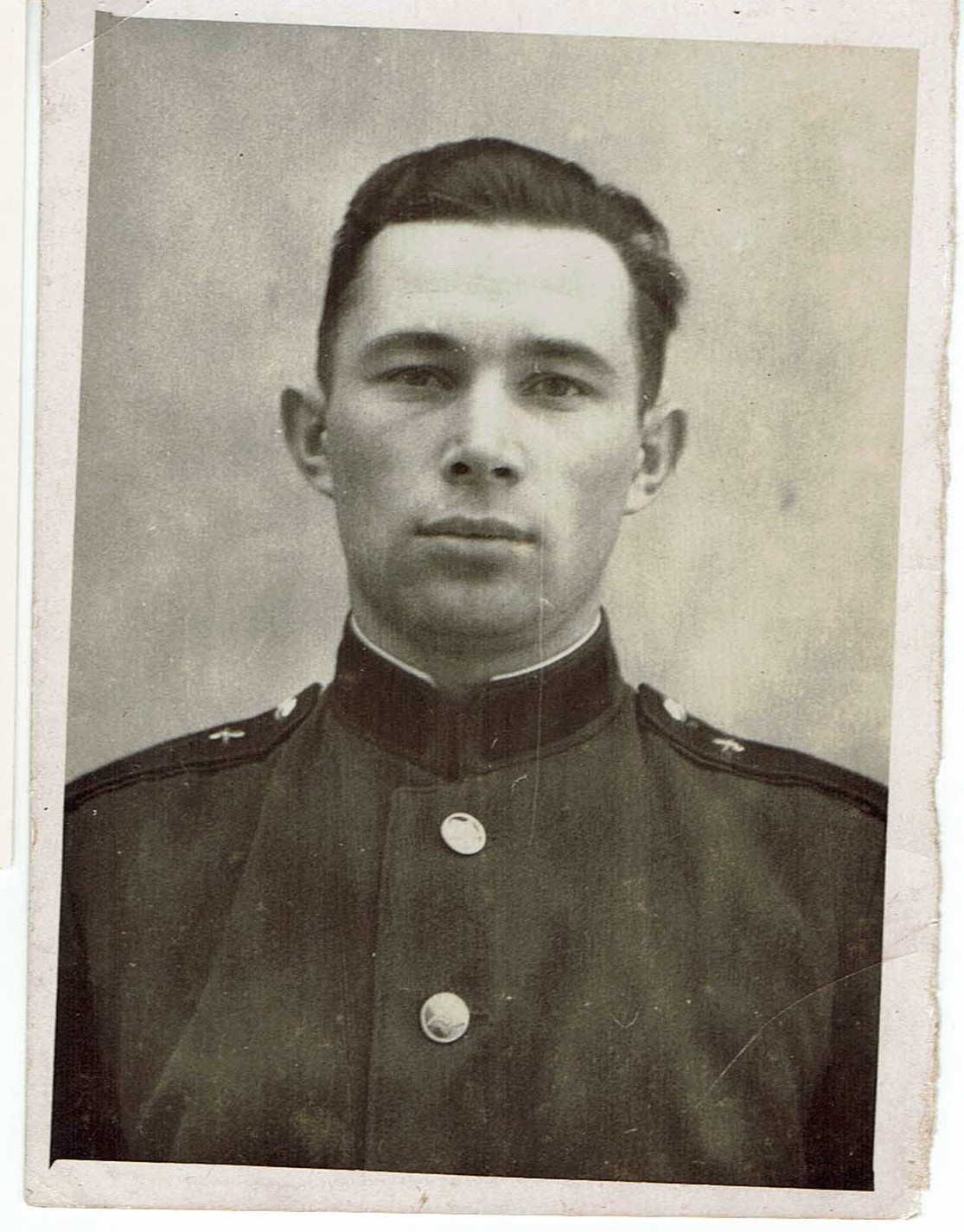
Nikolai when he was young.
In 1935 was I, Nikolai born in the Ukraine. I grew up in a very rural area, the next big city was far away and to the other villages were also quite a distance. All in all we have to provide for ourselves, so it was typically to have a big yard with plenty of animals and plants.
During the war, our Village was occupied by German soldiers. The front passed our village, we were on the German side. As a result of this we were forced to be indoors most of the time, nevertheless we never felt any kind of threat. One day when we were at our neighbor’s place in the morning, two German soldiers told us to leave the village. Hence we left through our backyard and walked about 3km to another village. I remember no damage and feeling any fear, I think this really depends on the people. Nevertheless, hunger was a big problem. If you had an animal it was often the case, that the animal was taken from you to provide the soldiers with food. We had luck that our cow was not taken away and she saved us. It was hard to survive. Beside milk we just had potatoes to eat. Our neighbor had a food basement, where we hid during the war.
Home during the war meant for me my family. I was lucky enough to be surrounded by my family. When I was nine years old, I started school. The classes were very mixed because during the war nobody had the opportunity to go to school. After seven years I started working in our village, because to finish ten years of school you had to go again to another village which was 4km away. After my military service I decided to go to a construction site in Kazakhstan in 1961. During this time it was not typical to travel because there were no passports, so I had to be registered as a construction worker at this project. In the following I left my homeland and started working somewhere in the middle of Kazakhstan, where I shortly after met my wife.
Earliest Memory Of A Crisis – Tamara
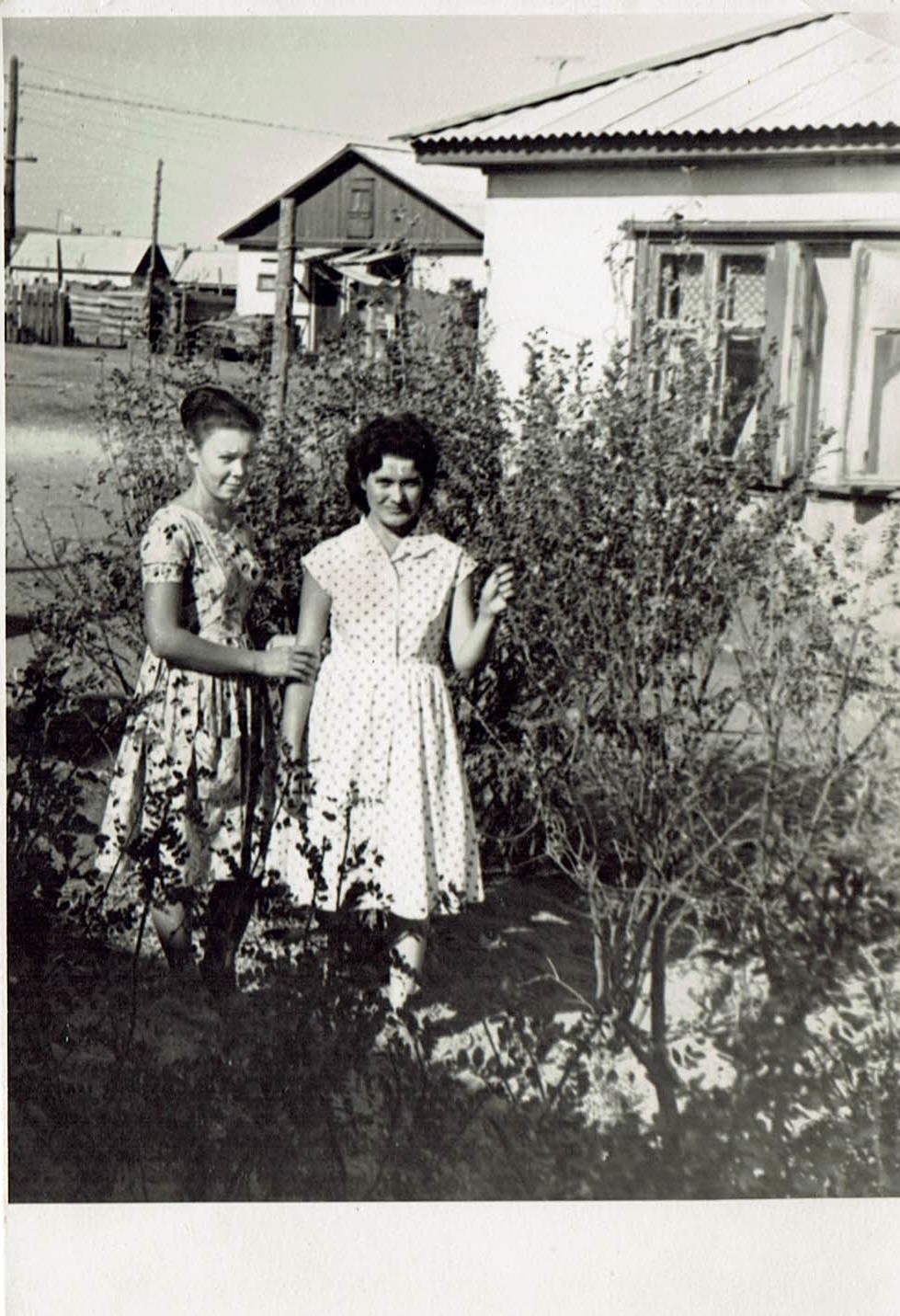
Tamara when she was young.
In 1940 was I, Tamara, born in the middle of Kazakhstan. I mostly remember the last years of the war. In the war we had hunger, as well as us also the animals had no food. I still remember snakes came to our home searching for food. In 1946 there was a great hunger, unfortunately my mother lost the cards for food, nevertheless this happened relatively at the end of the hunger crisis and were incredibly lucky not to starve.
During my life in Kazakhstan I had to move four times. Although I was a little girl not really understanding what home was, it still bothered me because I had to watch everything and live through the rough times. Of course my family was at home and the most important thing to me, but my father was gone until I was seven. On his return he explained to me why so many nations are concentrated in Kazakhstan.
I did not have the opportunity to go to school either, I had to look after my siblings. One day my father decided that we would have lessons at home, including my parents, because we hardly spoke any Russian, we only spoke German at home. When I was 15 we finally moved to Topar. I finally got the opportunity to go to school when I was 16 and already working, I went to night school. I worked as an operator in the power plant of Topar, where I met my husband.
Back in Kazakhstan we were often verbally abused because we were German. They called us fascists and often made us scapegoats.
The Fall Of The Soviet Union -Tamara and Nikolai

Tamara (r.) und Nikolai (l.).
Many years have passed since our first memory of a crisis. The years that followed were also marked by numerous minor crises. Again and again you had to reckon with a shortage of products, either there were very long lines or you could only pay with a grocery card. We still remember the absence of money and the very weak currency the Soviet money had. For instance, we had a beautiful garden plot with many beautiful flowers. One day our garden plot was plundered. A bit later we saw a neighbors of ours selling our flowers to earn a little money to provide for her family. It was typical for this time that many people sold their belongings to survive. We were lucky enough that food was directly sold in the powerhouse where we worked, it was more expensive but at least we did not have to hunger. In exchange for providing the city with electricity, we got products.
At first we didn’t want to leave Kazakhstan because Tamara’s mother feared that they would be excluded again, because all their children were married with no Russian German immigrants. In 1997 we finally moved to Germany. Tamara’s parents, siblings and our oldest son were already living Germany.
We both already had our interest in Germany back in Kazakhstan. Tara grew up in a German community and was living with German culture and language every day until she started working. As a young girl she always dreamed to travel to Germany as a tourist, but unfortunately she was never allowed to. The government feared she would stay in Germany. So the dream of having a little peak in her heritage was never fulfilled. As she emigrated to Germany Tamara’s notion differed from the reality, nevertheless she was very happy to be here and never wanted to go back.
Nikolai had his encounter with Germans back in the Ukraine. Some time before emigrating he began studying the German language. He knew it was the right choice to leave this falling apart country to have a secure future. He came to Kazakhstan to work but found love. To Germany he emigrated with a certain sense of home.
We both quickly settled in Germany, made many friends and traveled around the country. Of course we have to face some hurdles here too. We were in a way refugees.
Dealing With COVID-19 -Tamara and Nikolai
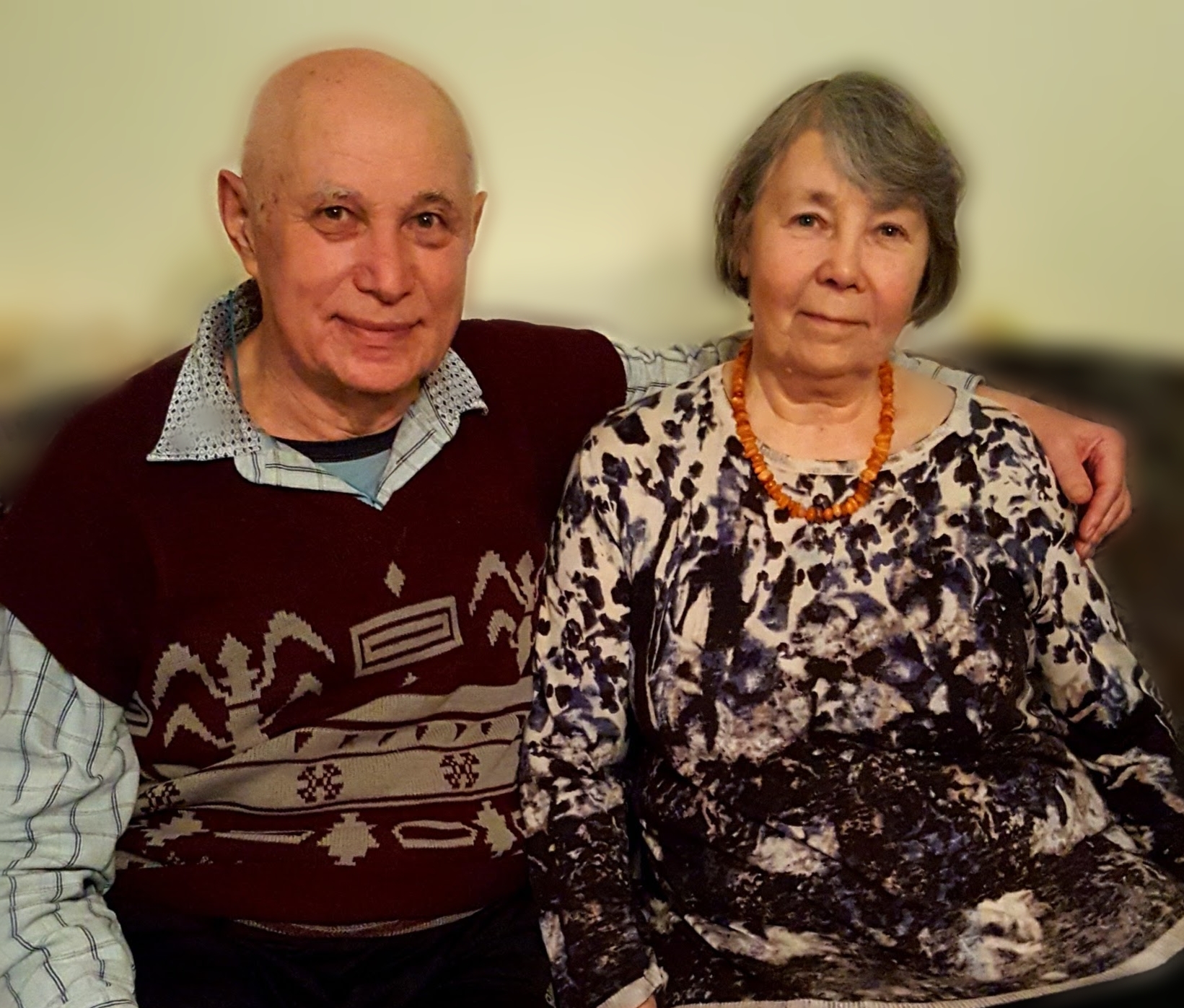
Nikolai and Tamara in 2020.
Today there is COVID-19 a worldwide pandemic, many people have an extreme fear of the virus. People are different, everybody has their own way to accept change. All measures are comprehensible for us, therefore we only do the bare necessities. Certainly it still takes some getting used to being surrounded by masks all the time, but it is a protective measure and because of that it doesn’t bother us at all. Of course we are also worried, we are old, we do not have a long time left and have again to live relatively restrict. We prefer to take the positive side into account, we are still luckily allowed to go out. We ever hardly meet people early in the morning, when we go out for a walk.
Why should we be afraid? Fear makes everything worse. Every crisis offers new opportunities, it should be considered to what extent such a change in life suits you and how you can perceive new opportunities.

